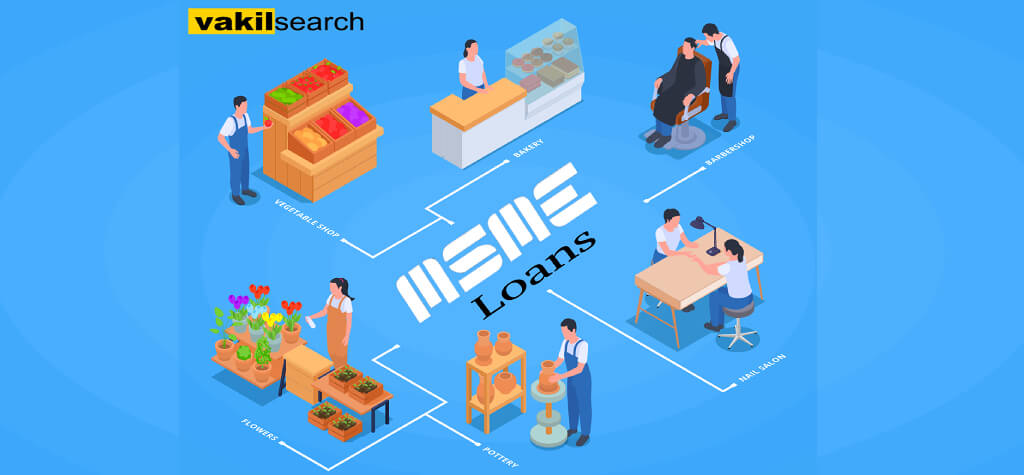This blog explores the impact of MSMEs on job creation, including statistics on employment, case studies of successful businesses, and challenges faced by MSMEs.
Micro, Small and Medium Enterprises (MSMEs) are the backbone of the economy, contributing significantly to the employment generation and economic growth. MSMEs play a crucial role in the development of the country as they provide employment to a large number of people, especially in rural and semi-urban areas. According to the Ministry of MSMEs, these enterprises contribute approximately 30% of the GDP and 40% of the exports from India. In this article, we will explore the definition of MSMEs, the importance of these enterprises in the economy, and how MSMEs impact job creation. We will also discuss how to get MSME registration, benefits of MSME registration, and the challenges faced by MSMEs in creating jobs. Learn more about MSME and Job Creation.
MSME and Job Creation
According to the Ministry of MSMEs, these enterprises contribute approximately 30% of the GDP and employ around 110 million people. MSMEs have the potential to generate more jobs in comparison to larger industries as they require low capital investment and have a higher employment intensity.
Case studies of successful MSMEs have shown that these enterprises can have a significant impact on employment generation. For instance, the Amul Dairy Cooperative in Gujarat, which started as a small cooperative in the 1940s, has become a successful MSME and today employs more than 1.6 million people, providing employment opportunities to both skilled and unskilled workers.
However, MSMEs face several challenges in creating jobs. These challenges include limited access to finance, lack of skilled manpower, outdated technology, inadequate infrastructure and market access, and regulatory compliance issues. These challenges are compounded by the COVID-19 pandemic, which has severely impacted the MSME sector, resulting in job losses and business closures.
To address these challenges, the government has initiated various schemes and measures, such as the Atmanirbhar Bharat Abhiyan, to support and promote MSMEs. These measures aim to provide financial assistance, technology up-gradation, marketing support, and ease of doing business. By addressing these challenges, the MSME sector can continue to play a crucial role in job creation and contribute to the socio-economic development of the country.
How to Get MSME?
Getting MSME registration is a simple and easy process that can be done online through the Udyog Aadhaar portal. The process involves filling up a form with basic information about the business, such as the name of the enterprise, address, type of enterprise, PAN number, and bank account details.
To register for MSME, a business must meet the eligibility criteria based on its investment and turnover. Micro-enterprises with an investment of up to ₹ 1 crore and a turnover of up to ₹ 5 crore can register as a micro-enterprise. Small enterprises with an investment of up to ₹ 10 crore and a turnover of up to ₹ 50 crore can register as a small enterprise, and medium enterprises with an investment of up to ₹ 50 crore and a turnover of up to ₹ 250 crore can register as a medium enterprise.
After filling the form and submitting the required documents, a unique Udyog Aadhaar number is generated, which serves as the MSME registration number. This number can be used to avail of various schemes and benefits provided by the government to MSMEs.
Impact of MSME on Employment Generation
MSMEs play a crucial role in generating employment in the economy. They are the largest providers of employment after agriculture, and their contribution to employment is significant. MSMEs provide employment opportunities to a large number of people, including skilled, semi-skilled, and unskilled workers. As small businesses, MSMEs have the ability to create jobs in various sectors and at different skill levels, thereby contributing to the economic development of the country. The growth of MSMEs has a direct impact on job creation, and their success is essential for the growth of the economy and the creation of employment opportunities.
Challenges Faced by MSMEs
MSMEs face various challenges in running their businesses, some of which are as follows:
- Limited Access to Finance: Access to finance is a major challenge for MSMEs, as they often lack collateral and credit history. This makes it difficult for them to obtain loans from financial institutions.
- Lack of Skilled Workforce: MSMEs face a shortage of skilled workers, which affects their productivity and growth.
- Inadequate Infrastructure: MSMEs often operate in areas where infrastructure is inadequate, such as poor road connectivity, lack of power supply, and inadequate water supply, which affects their efficiency and productivity.
- Competition from Large Enterprises: MSMEs face stiff competition from larger enterprises that have more resources and economies of scale.
- Technological Obsolescence: MSMEs often lack the resources to upgrade their technology, which affects their productivity and efficiency.
- Regulatory Compliance: MSMEs face several regulatory compliance requirements, such as taxes, licenses, and permits, which can be time-consuming and expensive.
- Supply Chain Disruptions: MSMEs are often dependent on a few suppliers, which can lead to supply chain disruptions and affect their operations.
Conclusion
In conclusion, MSMEs play a significant role in job creation in the economy. They are the largest providers of employment after agriculture and contribute to the economic development of the country. The impact of MSMEs on employment generation is significant, as they provide employment opportunities at different skill levels and across various sectors.
However, MSMEs face several challenges that affect their growth and sustainability. These challenges include limited access to finance, lack of skilled workforce, inadequate infrastructure, competition from larger enterprises, technological obsolescence, regulatory compliance, and supply chain disruptions.
Read more,










